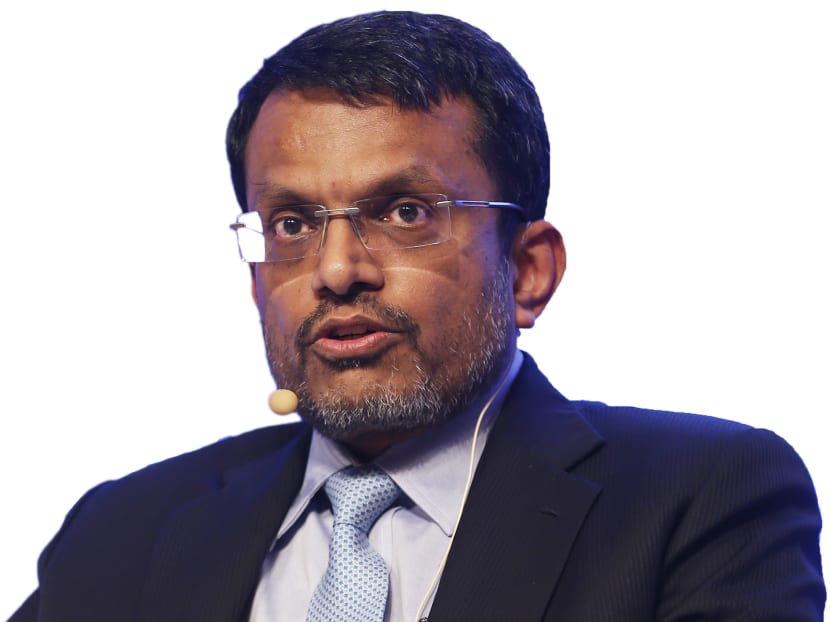Fine-tuning financial regulation for uncertain times: Ravi Menon
SINGAPORE — Financial regulators have to be adaptable to changes sweeping the financial industry, said Mr Ravi Menon, managing director of the Monetary Authority of Singapore, addressing the Official Monetary and Financial Institutions Forum (OMFIF) on Thursday (April 20).
SINGAPORE — Financial regulators have to be adaptable to changes sweeping the financial industry, said Mr Ravi Menon, managing director of the Monetary Authority of Singapore, addressing the Official Monetary and Financial Institutions Forum (OMFIF) on Thursday (April 20).
Mr Menon was speaking to select group invited by the OMFIF, an independent think tank for central banking, economic policy and public investment, at the Arts Club in Washington DC.
The global financial crisis of 2008 revealed deep faults in the financial system and wide-ranging reforms were taken strengthen the banks, make the derivatives markets safer and tackle the too-big-to-fail problem.
Eight years on, “it is time to evaluate the impact of the regulatory reforms,” said Mr Menon.
Stressing the importance of adaptability in financial regulation, especially in uncertain times, he said financial regulators have to constantly evaluate and fine-tune reforms to adapt to the changing environment. With memories of the crisis fading and the compliance burden of new regulation continuing to grow, pressures have begun to mount to unwind some of the reforms. Not least because the cost of risk management and compliance has “exploded”.
Citing a Thomson Reuters report, he said more than one-third of financial firms spend at least an entire day each week tracking regulatory change. Moreover, the headcount for legal, compliance, and regulatory matters has grown significantly in financial firms, in some case, even doubling.
While cautioning against “pendulum swings” in regulation that could undermine the gains in financial stability, Mr Menon said the costs of compliance have to be weighed against the benefits of a more stable financial system to support sustainable economic growth.
Having said that, however, some “fine-tuning” may be necessary to reduce the unintended effects of reforms while preserving their benefits. Regulatory policy “must continually seek the fine line between discouraging excessive risk-taking and encouraging innovation,” and “we should not be afraid to adjust and fine-tune where necessary,” he added.
Mr Menon’s remarks come at a time when the Singapore Exchange is considering measures to adjust its policies and tackle rising compliance costs, which some analysts say are hurdles to attracting international firms to list in Singapore and are a curb to liquidity.
The local exchange has seen a number of companies delist over the past year, including lifestyle products company Osim, electronics group Aztech, shipping firm Neptune Orient Lines, transport operator SMRT and budget carrier Tigerair.
As a small country, Singapore has an instinctive pull towards international standards and a global system, said Mr Menon. All countries, however, must realise that “what happens outside our borders has an increasingly larger impact on what happens inside,” he said.







